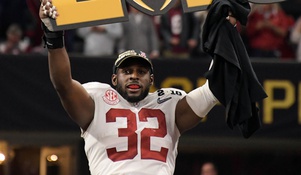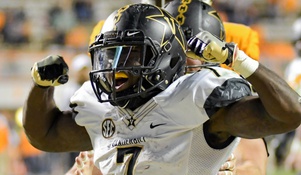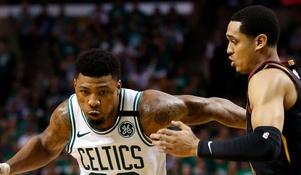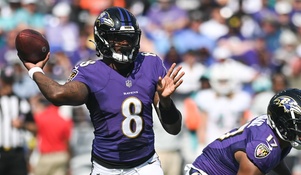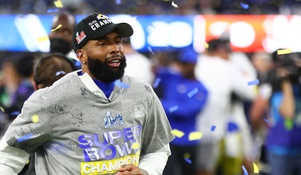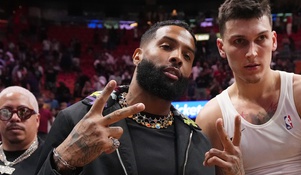Black QBs Have Come Far, Have Far to Go
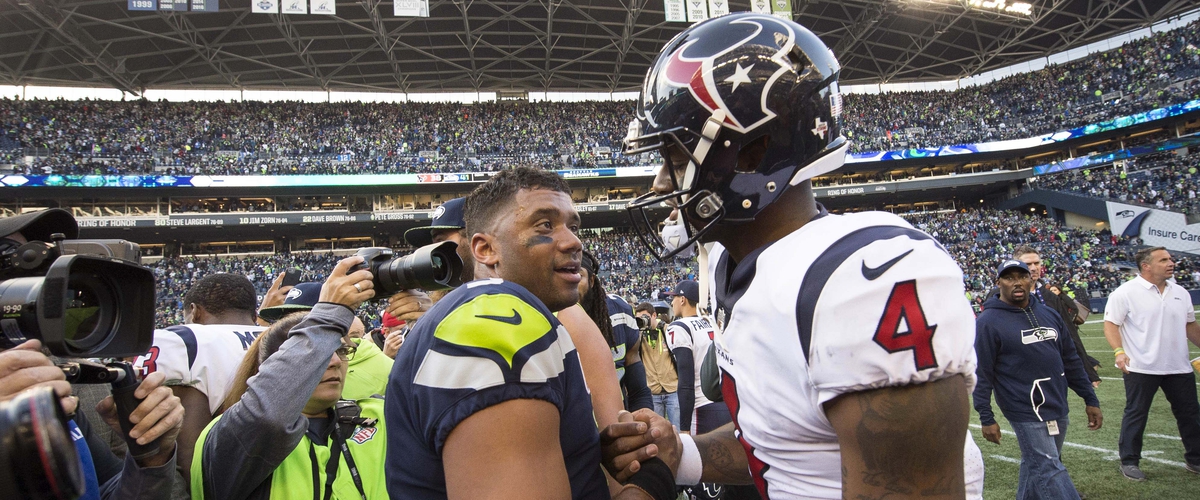
Remember when Michael Vick being drafted first overall was a big deal in 2001? The selection made history: The first black quarterback drafted first overall. For years black quarterbacks came close. For instance, in 1999 Donovan McNabb and Akili Smith went second and third overall, respectively. But first overall remained out of reach for 65 years.
Vick’s selection, and his future success, would break barriers, smash stereotypes, and open doors for black quarterbacks to flood the league in the future.
Almost 17 years later, progress is evident. JaMarcus Russell (2007), Cam Newton (2011) and Jameis Winston (2015) were first overall selections. Josh Freeman (2009), Robert Griffin (2012), E.J. Manuel (2013), and Teddy Bridgewater (2014) were first round picks.
But black quarterbacks flooding the league was expecting too much, as there are only 32 starting jobs in the league. Progress isn’t moving as fast as hoped.
It took until last season for a black quarterback to start a game for every team. Geno Smith made it official with the New York Giants, though the accomplishment was tainted because it was part of the Eli Manning controversy.
In 2016 Jacoby Brissett crossed the New England Patriots off the list of holdouts, though he did so due to Tom Brady’s four-game suspension and Jimmy Garoppolo’s injury.
By my unofficial count, Brissett was one of 10 black QBs to start at least six games in 2017. That’s approximately a third of the league. It’s a rate that parallels the percentage of black QBs drafted in the first round since 2002: 13 out of 32 quarterbacks drafted in the first round were black.
Pretty good gains in 15 years, but in a league that’s almost 70 percent black, there’s further to go.
Black quarterbacks continue the battle to expand the definition of an NFL quarterback. The chances they are punished for their athleticism by being forced to change positions as they enter the league has decreased.
But the stubborn Old Boys Network, from owner, through the general manager, down to the coaches and scouting staff, still believes in the winning from the pocket maxim. It took years for NFL decision makers to fully appreciate the benefits of a mobile quarterback. But the belief in an athletic quarterback is too few and far between.
Let me make this clear. Athletic college quarterbacks switching positions isn’t exclusively done to black players. Scott Frost (2008) switched to safety, while Matt Jones (2005) and Julian Edelman (2009) switched to receiver.
Nor is every athletic black quarterback advanced enough as a passer to remain under center at the pro level. Terrelle Pryor (2011) had his shot but failed as an NFL quarterback. He switched to receiver, produced a 1,000-yard season, and signed one-year $6 million deal with the Washington Redskins in 2017.
With the behind in the times mindset that still exists in the league, asking an athletic passer to change positions is bound to happen again. Historically, it happened to black quarterbacks a lot.
Could any of them become as good as Kordell Stewart, if not better? We can only look back on Brad Smith (2006), Antwaan Randle El (2002), Joshua Cribbs (2005), Ronald Curry (2002), and others and only imagine if they could had helped change the game.
The old school approach to finding a franchise QB was to find a passer that fits the system. That method is becoming obsolete, as now the offense is designed around the franchise quarterback’s strengths. That should include utilizing the quarterback’s athleticism to enhance the offense.
That logical approach is why the Carolina Panthers have been successful with Cam Newton under center. Carolina didn’t try to turn Newton into a drop back passer. They added designed runs to the offense and allowed Newton to use his feet when he felt it was the best option. And over the years the coaching staff developed Newton as a passer.
The results have been three Pro Bowl selections, an All-Pro selection, league MVP in 2015, and three playoff appearances, including leading the Panthers to Super Bowl 50. All this in spite of a career 58.5 completion percentage because Newton added 4,320 yards on the ground with 54 rushing TDs.
Yet Newton’s success, along with Colin Kaepernick’s incandescent two years and Tyrod Taylor getting the most out of mediocre (at best) Buffalo Bills teams, has barely shifted the tide in favor of fully physically gifted passers.
It remains baffling that the experienced Deshaun Watson, the man that embarrassed the dominant University of Alabama defense two National Championships in a row, was selected after Mitchell Trubisky, a starter for just one season at North Carolina.
The same could be happening in this year’s draft. Lamar Jackson, a phenomenal physical talent with a whip-like arm and a 2016 Heisman Trophy under his belt, is having his NFL quarterback dream questioned, with his below 60 percent completion percentage held against him. Meanwhile Wyoming’s Josh Allen is discussed as the potential first pick overall, regardless of his career 56.2 percent completion percentage.
Nevermind that Jackson’s completion percentage has improved from 54.7 in 2015 to 56.2 in 2016 to 59.1 in 2017.
The NFL may have its bias against athletic quarterbacks, but the league will have to adapt. College football remains steps ahead of the pros in regards to changing to stay in step with trends. And with the abundance of athletes playing quarterback at the high school level and the continued proliferation of spread option offenses at the college level, more athletic passers will be draft eligible. It will be up to the NFL to appreciate all they have to offer and adjust to get the most out of them.
Black quarterbacks have to hold up their end of the bargain as well. They have to be productive from the pocket. They need to be able to read defenses, have a well-developed sixth, and know the difference between when to step up in the pocket or make a break for it.
Combine that with the athleticism to dodge an A-gap blitz and turn a broken play into a 50-yard touchdown run and that quarterback could change the league.
Looking back, it’s crazy to think Tim Couch was selected ahead of McNabb. If winning came first, Kaepernick wouldn’t had missed the 2017 season. And the next time a Lamar Jackson-like passer is in the draft, he will be in the discussion for being selected first overall.
Or will some teams only see a receiver?
Questions? Comments? Send to [email protected]. Follow @NE_Arena on Twitter.

